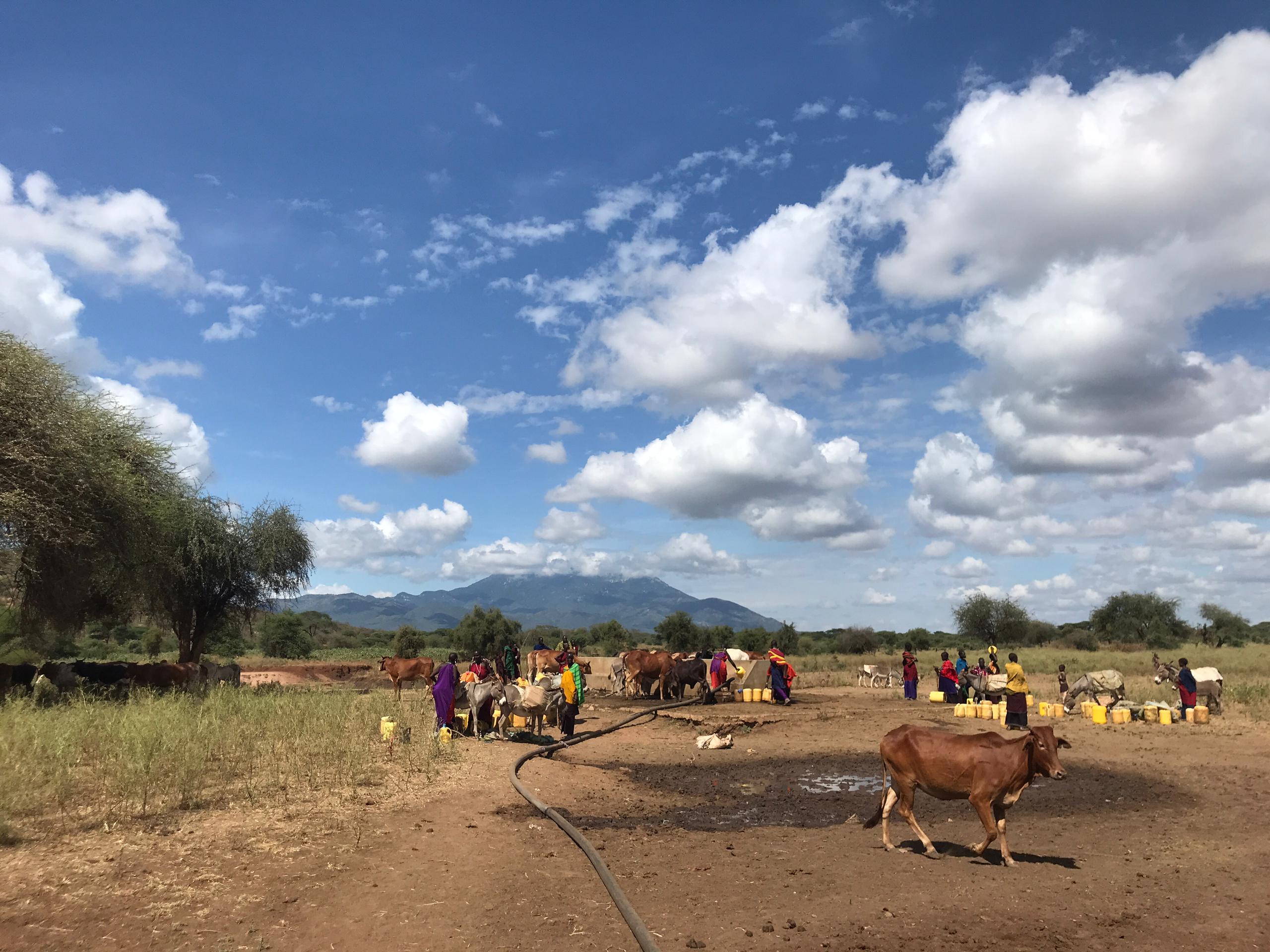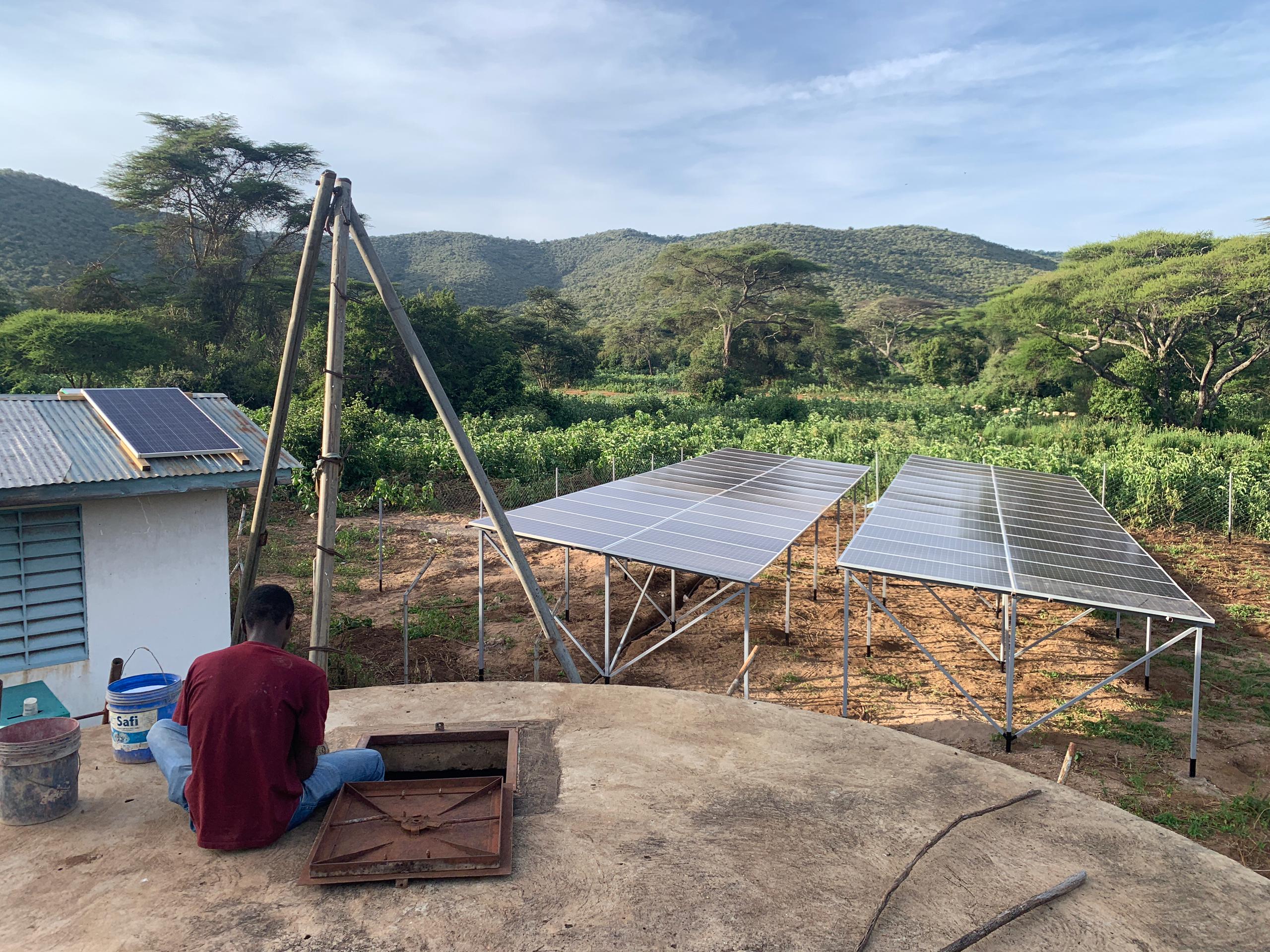Water Access
Water scarcity is a critical challenge for rural communities living in the arid and semi-arid regions of Tanzania. In response, OMASI has drilled boreholes in the Simanjiro, Longido, and Same districts, and continues to drill in these and other areas that previously lacked reliable surface water sources.
To ensure sustainable access to clean water, OMASI pioneered the social business approach model for water provision. This innovative model empowers communities to manage, maintain and take onwnership of their water resources sustainably and was later adopted by local authorities and other development practitioners across the region.
Building on this foundation, OMASI and Smart Villages have now introduced and piloted a Pay-As-You-Go (PAYG) solar borehole system. The PAYG system enables rural communities to acquire solar borehole systems, replacing costly and polluting diesel generators by spreading the initial investment cost over time. This financing model makes water access affordable and reliable while encouraging private sector participation and commercial financing to support sustainable investments in renewable energy infrastructure for rural water access.
Improved water access through these initiatives has led to better health outcomes by reducing waterborne diseases and enhancing hygiene. It has also boosted livestock productivity by ensuring reliable water supply for animals, which is crucial for pastoralist livelihoods.
Through this initiative, rural communities can transition to clean energy solutions that support long-term water security, affordability, environmental sustainability, and overall community well-being.

